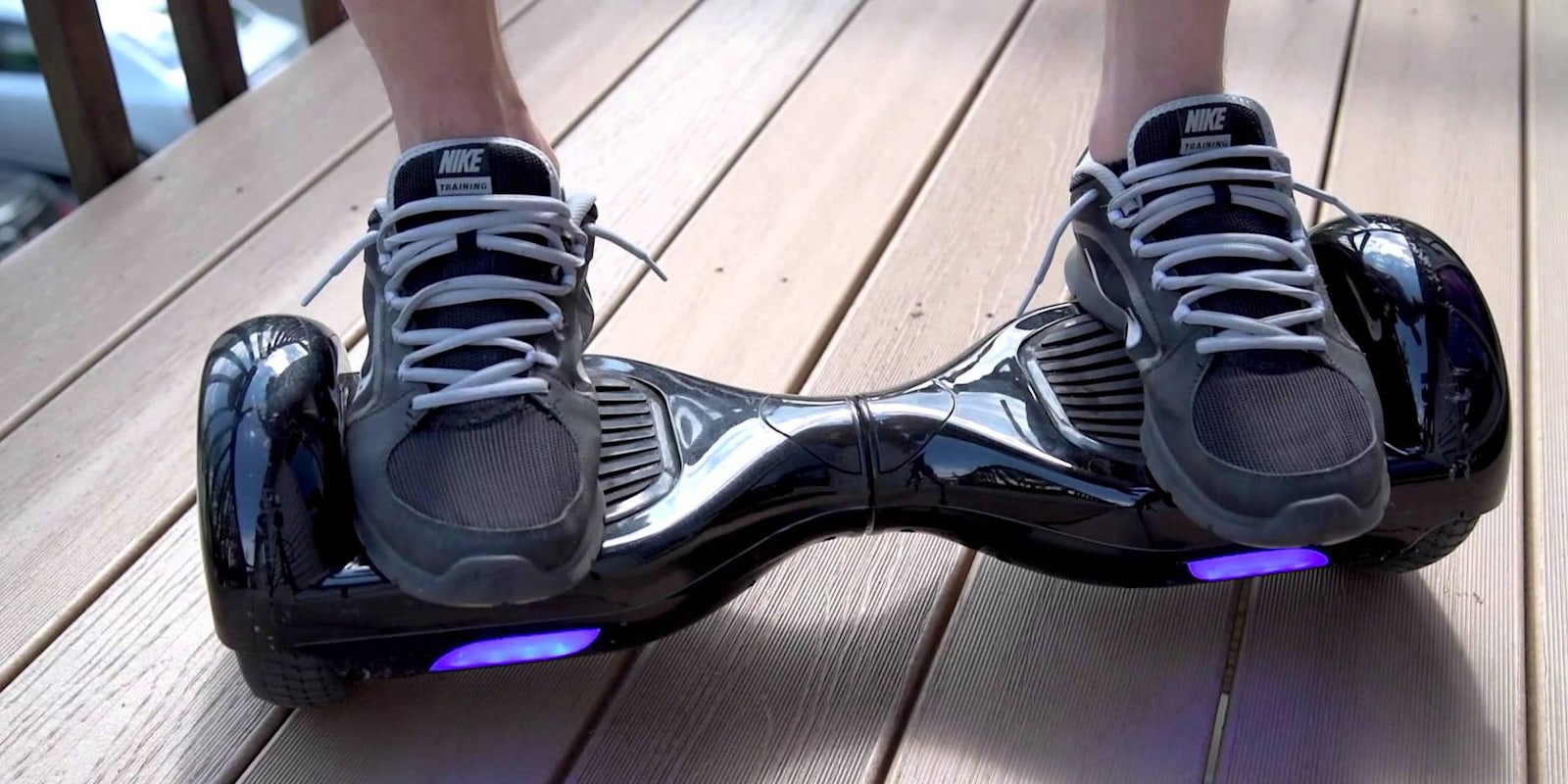After a rash of reports about so-called “hoverboards” spontaneously combusting, Amazon has begun removing some of the devices from its virtual shelves, while discount ecommerce company Overstock has banned sales entirely.
The Consumer Product Safety Commission recently indicated that it was investigating “at least 10 reports of hoverboards fires in nine states.”
‘Exploding’ hoverboard blamed for destroying Louisiana family’s home: https://t.co/wEDdChGBlI pic.twitter.com/4J7ZsSxEjM
— WGN TV News (@WGNNews) December 1, 2015
A spokesperson for hoverboard manufacturer Swagway—which is a much more accurate name for the devices—told the Verge that Amazon had reached out regarding safety standards.
“Amazon just sent out a notice to all ‘hoverboard’ sellers to ‘provide documentation demonstrating that all hoverboards you list are compliant with applicable safety standards,’” the spokesperson said in a statement. “Swagway already meets all those certifications and is happy that Amazon has decided to take steps to weed out the low quality boards.”
While other hoverboard brands can still be found on the online marketplace, there are currently no Swagway items listed.
There have been many worldwide accounts of hoverboards spontaneously catching on fire. The problem has generally been traced to issue with the battery packs used to charge the hoverboards. Most worrisome, it can occur even when the units are not plugged into a power source.
A spokesperson from the consumer safety group Electrical Safety First told the Daily Dot that “there are no particular brands or models identified as being particularly prone to this problem, but it does seem to be revolving around the cheaper end of the market.”
As NPR’s Planet Money podcast recently explained, there is a wide variety of companies producing hoverboards. Even so, the structure of the market isn’t based on one innovator off of which its competitors began copying. Instead, it’s comprised exclusively of knock-offs, with a large number of Chinese manufacturers producing units in an environment with weak, if nonexistent, intellectual-property rights. Some have argued that the system has created a race to the bottom in terms of safety.
Online shopping giants aren’t the only concerned parties. Last week, major airlines Delta, United, and American announced that they would no longer allow passengers to bring hoverboards on flights.
U.K. authorities have banned riding hoverboards on the street entirely. That decision primarily had to do with rules prohibiting motorized vehicles on public sidewalks and hoverboards being considered unsafe to ride on the street. But British officials have also impounded some 15,000 units due to fire-safety concerns.
Despite the controversy surrounding hoverboards, they’re still selling like hotcakes. On Cyber Monday alone, eBay sold nearly 7,500 hoverboards—that’s one every 12 seconds.
H/T The Verge | Photo by Daniel Petkov/Wikimedia Commons (CC B SA 4.0)


